The University Press of Colorado is a cooperative publishing enterprise supported, in part, by Adams State University, Colorado State University, Fort Lewis College, Metropolitan State University of Denver, Regis University, University of Colorado, University of Northern Colorado, Utah State University, and Western State Colorado University.
The paper used in this publication meets the minimum requirements of the American National Standard for Information Sciences Permanence of Paper for Printed Library Materials. ANSI Z39.48-1992
Maffie, James.
Aztec philosophy: understanding a world in motion / James Maffie.
Includes bibliographical references and index.
ISBN 978-1-60732-222-1 (cloth: alk. paper) ISBN 978-1-60732-223-8 (ebook)
1. Aztec philosophy. 2. AztecsFolklore. I. Title.
Acknowledgments
This work would not have been possible without the monumental achievements of Miguel Len-Portilla and Alfredo Lpez Austin. They are the giants upon whose shoulders Aztec scholarship rests. Although I know neither personally, I found myself in constant dialogue with them while writing this book. I also owe intellectual debts to the work of Cecelia Klein, Willard Gingerich, David Hall, Roger Ames, Thelma Sullivan, Eva Hunt, Alan Sandstrom, Pamela Effrein Sandstrom, Barbara Tedlock, Dennis Tedlock, Timothy Knab, Louise Burkhart, Davd Carrasco, H. B. Nicholson, Jill McKeever Furst, Kay Read, Doris Heyden, Vine Deloria Jr., and Peter Furst.
Although trained in Western epistemology, metaphysics, and philosophy of science, I have always harbored a deep interest in non-Western philosophies. It was my chancing upon Len-Portillas Aztec Thought and Culture that led me to decide to pursue Aztec (Nahua) philosophy. Such a pursuit is tantamount to philosophical heresy and career suicide from the perspective of academic philosophy in the USA. My previous colleagues at Colorado State University Grant Lee, Pat McKee, Ron Williams, James Boyd, Richard Kitchener, Jane Kneller, Michael Losonsky, and Bernie Rollins wholeheartedly supported my retraining myself as a Nahuatlist.
My thinking over the years has benefited from discussions with Sandra Harding, David Hall, Barry Hallen, Ben-Ami Scharfstein, Helen Verran, David Turnbull, Alberto Hernndez-Lemus, Henry Odera Oruka, Shari Stone-Mediatore, Norman Swazo, Helmut Wautischer, Zeno Vendler, Oscar Mart, Alicia Matsunaga, Susana Nuccetelli, Ofelia Schutte, Elizabeth Milan-Zaibert, Larry Lauden, Vinay Lal, Susantha Goonatilake, Meera Nanda, Lawrence Sklar, William R. Carter, Xuan Wang, Deepak Mirchandani, Sara Castro-Klaren, and Alejandro Caeque. For as long as I can remember, Julie Greene, Howard Brick, Paul Roth, William E. Morris, and Alex Greene have challenged me to rethink my ideas with greater rigor.
For stimulating discussions Id like to thank audience members at the Pratt Institute; the 2013 Northeastern Group of Nahuatl Studies Conference, Yale University; the Johns Hopkins University; American University; University of Colorado, College Springs; University of San Diego; University of Alaska, Fairbanks; Colorado College; Texas State University, San Marcos; Ohio Wesleyan University; Colorado State University; the Precolumbian Society of Washington, DC; University of Maryland; Caribbean Philosophy Association Meetings, Rutgers University; New Directions in Critical Theory Conference, University of Arizona; American Philosophical Association, Eastern Division Meetings; Nahuatl Workshop 1, University of Maryland; Latin American Studies Association Meetings, Montreal; Society for Iberian and Latin American Thought, American Philosophical Association, Pacific Division Meetings; Rocky Mountain Council for Latin American Studies, Santa Fe; and Third Annual St. Louis Philosophy of Social Science Roundtable.
I am deeply grateful for the support given to me by the University of Maryland, College Park. Dean James Harris and Richard Price, Chair of the Department of History, arranged a two-year research fellowship that enabled me to devote myself to researching and writing this book. Mary Kay Vaughn, Karin Rosemblatt, Daryl Williams, and Sandra Cypess welcomed me to my new home in the Latin American Studies Center. As successive directors of the Latin American Studies Center, Mary Kay and Karin have sponsored two Nahua Workshops. The Department of Philosophy offered me a place to teach world philosophies. Christopher Morris and Allen Stairs have been especially welcoming. Students in my World Philosophies, Aztec Thought, Indigenous Thought of the Americas, and Contemporary Latin and Caribbean Philosophy courses have helped me sharpen and clarify my ideas. Nancy Struna, Chair of the Department of American Studies, and Maxine Grossman, Director of the Religious Studies Program, have also extended welcome mats to me. Finally, the members of the Precolumbian Society of Washington, DC, provided me with an instant community here in the greater Washington, DC, area.
Id like to thank Darrin Pratt, Jessica dArbonne, Laura Furney, Daniel Pratt, and Karl Yambert at the University Press of Colorado for patiently guiding the manuscript through publication and the two anonymous referees who read an early draft and made insightful suggestions regarding its improvement.
Special thanks go to my teachers of Nahuatl at IDIEZ: John Sullivan, Urbano Francisco Martnez, Delfina de la Cruz de la Cruz, Andrs Francisco Martnez, and the extended Francisco Martnez family of San Luis Potos.
I have many Mesoamericanists to thank. At one time or another Alfredo Lpez Austin, Richard Townsend, John F. Schwaller, Jonathan Amith, Frances Berdan, Frances Karttunen, Jane Hill, Alejandro Santana, Kim Goldsmith, Davd Carrasco, Leisa Kauffmann, Gordon Brotherston, Richard Haly, Patricia Anawalt, Viviana Daz-Balsera, Alejandro Santana, Michael Smith, Jacqueline Messing, Catherine DiCesare, and John Millhauser have improved my understanding of Aztec philosophy. Joe Campbell generously shared many of his concordances of Nahuatl words. These along with his amazing A Morphological Dictionary of Classical Nahuatl were absolutely indispensable to formulating and testing my ideas.
Academics are commonly concerned with guarding their boundaries and wary of outsiders. I have been extremely fortunate to find a group of Nahuatlists who exemplify quite the opposite. I owe very special thanks to James Taggart, Cecelia Klein, the late Elizabeth Brumfiel, Jerome Offner, Joanna Snchez, and Camilla Townsend for warmly welcoming me and generously sharing with me their understanding of all matters Aztec. I spent several wonderful days at the Pratt Institute exchanging ideas with Janice Robertson. I have benefited immensely from Pamela Sandstroms first-hand knowledge of contemporary Nahua culture, and my manuscript has benefited equally from her expert indexing. John Sullivan repeatedly rescued me from Nahuatl words I found hopelessly impenetrable and along the way helped me appreciate the marvelous nuances of Nahuatl. Among this group, however, two individuals particularly stand out. Willard Gingerich enthusiastically welcomed me to the community of Nahua scholars and legitimized my desire to approach Aztec thought from a philosophers perspective. Willard has always been generously forthcoming with his highly original and subtle understanding of Aztec literature, poetry, and philosophy. Alan Sandstrom introduced me to the community of Nahua scholars by publishing two of my articles in

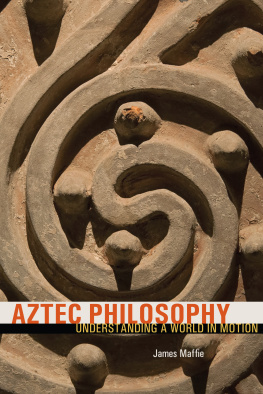

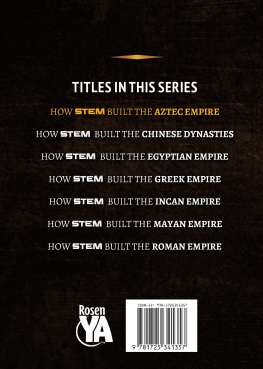
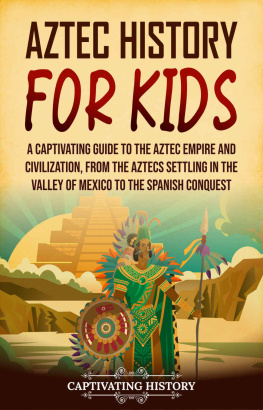
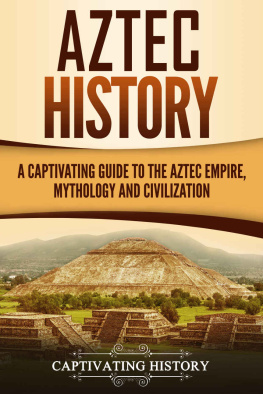
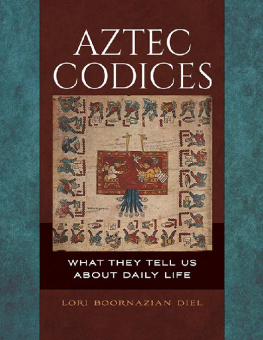
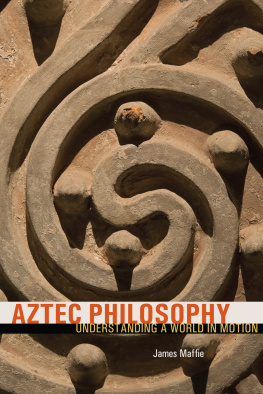
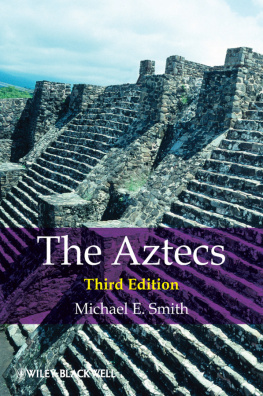


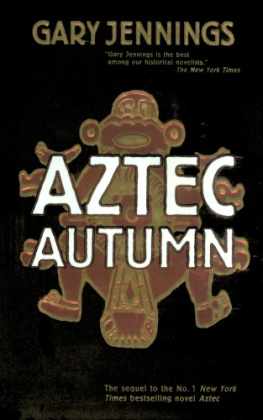
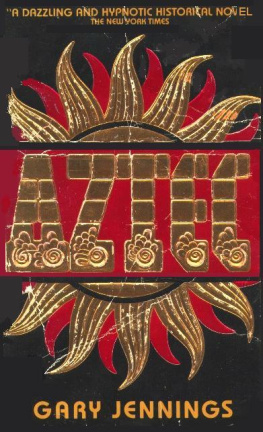
 The University Press of Colorado is a proud member of the Association of American University Presses.
The University Press of Colorado is a proud member of the Association of American University Presses.